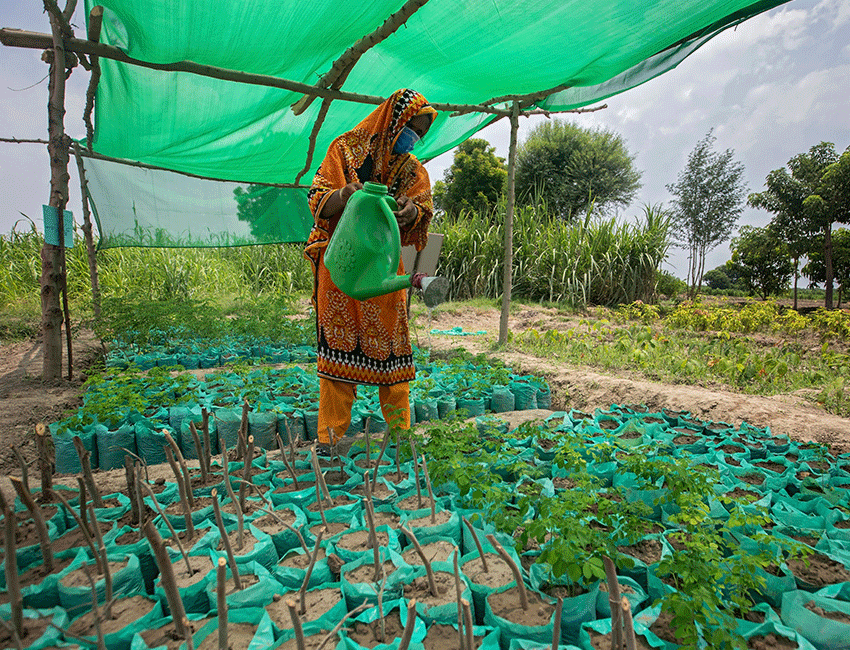Despite being South Asia’s second largest economy, Pakistan still has one of the highest rates of undernutrition in the world. Agriculture here should provide enough food to feed all its people, yet every year millions go hungry. Now, Covid-19 restrictions on transport have made it even harder for families to access nutritious food, as crops failed to reach market and harvests were left to rot.
Life for rural communities is hard. Pakistan is the fifth most vulnerable country to climate change in the world, and communities live in fear of the next natural disaster. In 2019 alone earthquakes, heavy rainfall and drought hit the region, having devastating impacts on local agriculture. Locust infestations are adding further challenges to rural life, putting a healthy diet beyond reach for the poorest people.
Improving community nutrition in Sindh
Sindh is Pakistan’s second largest food producing region, but much of its produce is sold to markets elsewhere for profit. This means local communities aren’t able to access enough good, healthy food – making malnutrition common in the area.
Our teams work across the province, promoting kitchen gardening, showing farmers how to grow vegetables such as onions, okra, tomatoes and pepper at their homes. We’re also encouraging them to grow crops that are resistant to climate change and providing families with livestock and poultry to improve their diets and income.
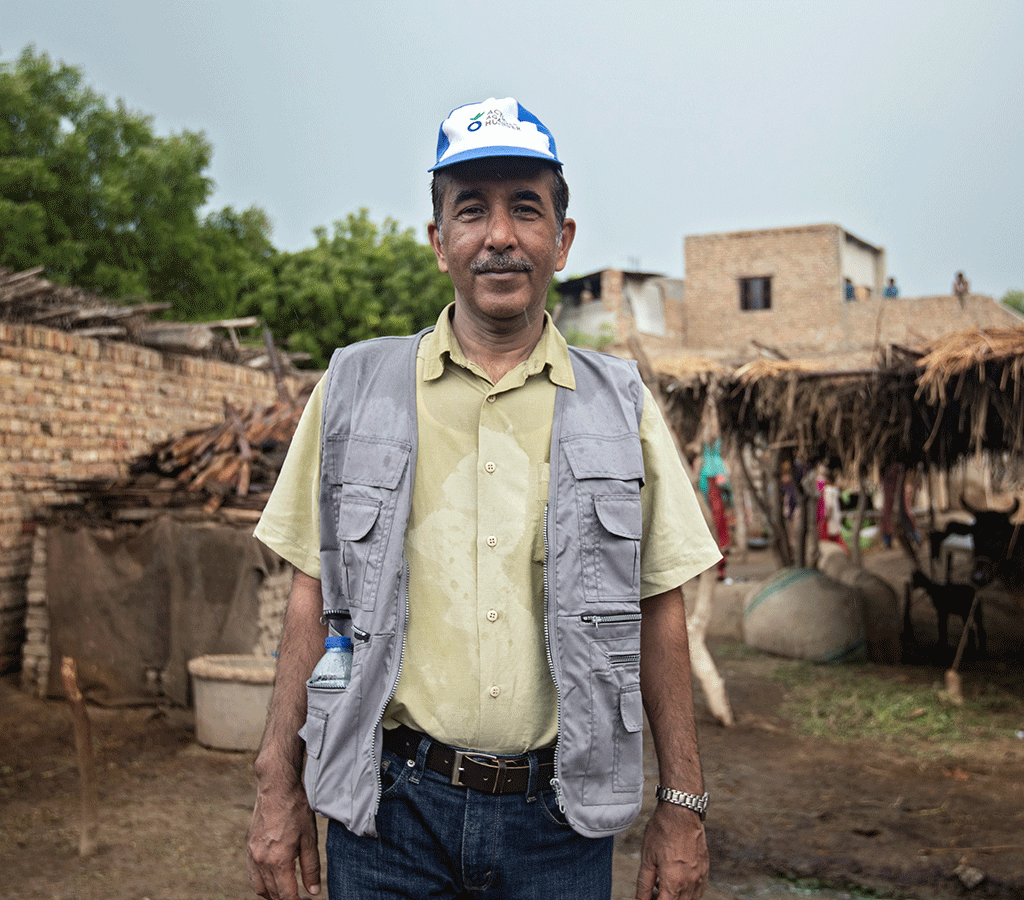
“We’re working on three to four important issues,” explains Rao Ayub Khan, our Senior Technical Manager in Pakistan. “Number one is kitchen gardening. Many small scale farmers focus on crops like rice, wheat and cotton, but they don’t think about kitchen gardening. Because of this, they don’t include many vegetables in their diet.”
“We have mobilised our teams to promote kitchen gardening,” continues Rao. “At least at home, so farmers can have access to good quality food.”
Helping communities to grow vegetables
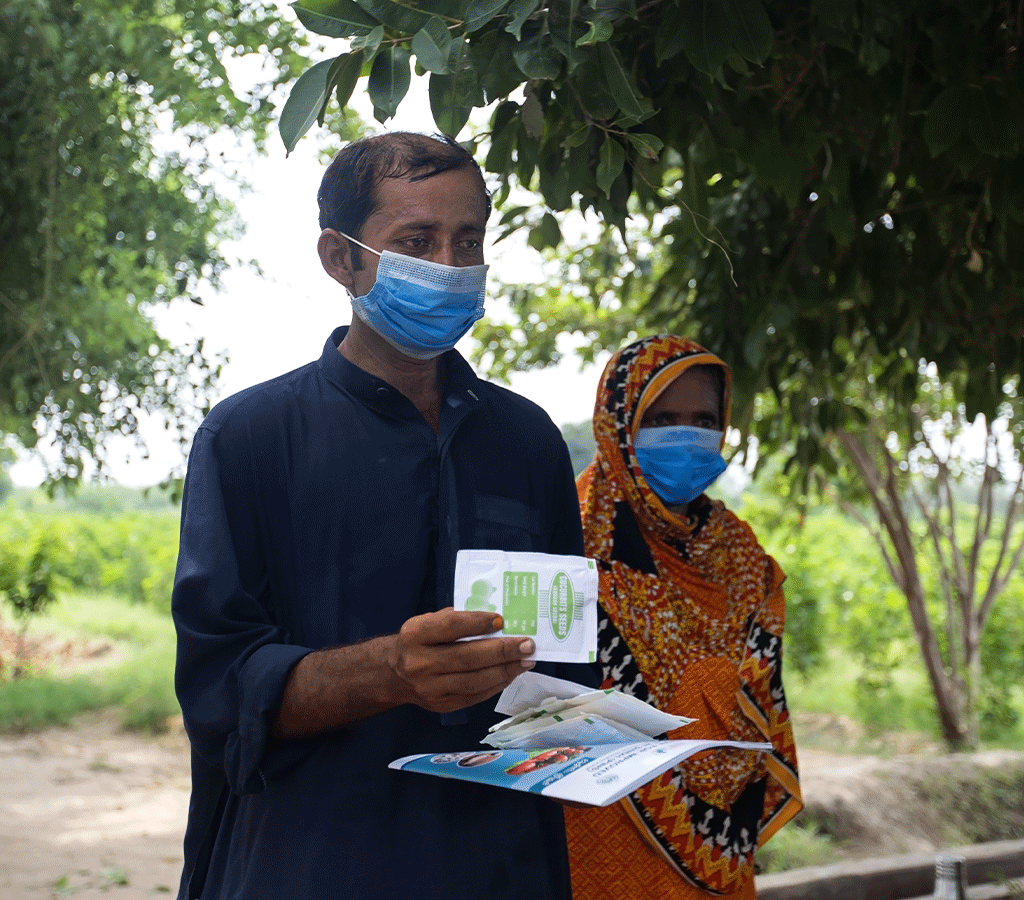
Soil salinity levels are very high in Sindh, which makes it difficult for families to grow vegetables. To tackle this, we’re working with farmers to increase their knowledge and change behaviours.
“We’re here to teach people how to grow vegetables and how to choose which land to cultivate. We want people to grow their own vegetables and stay healthy.”
At our farmer’s field schools, our teams supply seeds to women vegetable growers and train them how to grow the crops properly. During practical sessions participants can try new techniques and learn better ways to harvest. The aim is to grow different types of crop and increase production to ensure steady access to food during the lean season.
Supporting women entrepreneurs
For many families, adding protein to their diets is often too expensive. That’s why we’re helping farmers and their families to have high quality protein diets at reasonable prices. We’re supporting pregnant and breastfeeding women by supplying them with goats and poultry, helping families like Zareena’s with young children to have sustainable healthy food sources.
As a mother to young children, 25-year-old entrepreneur Zareena received two goats through our programme.
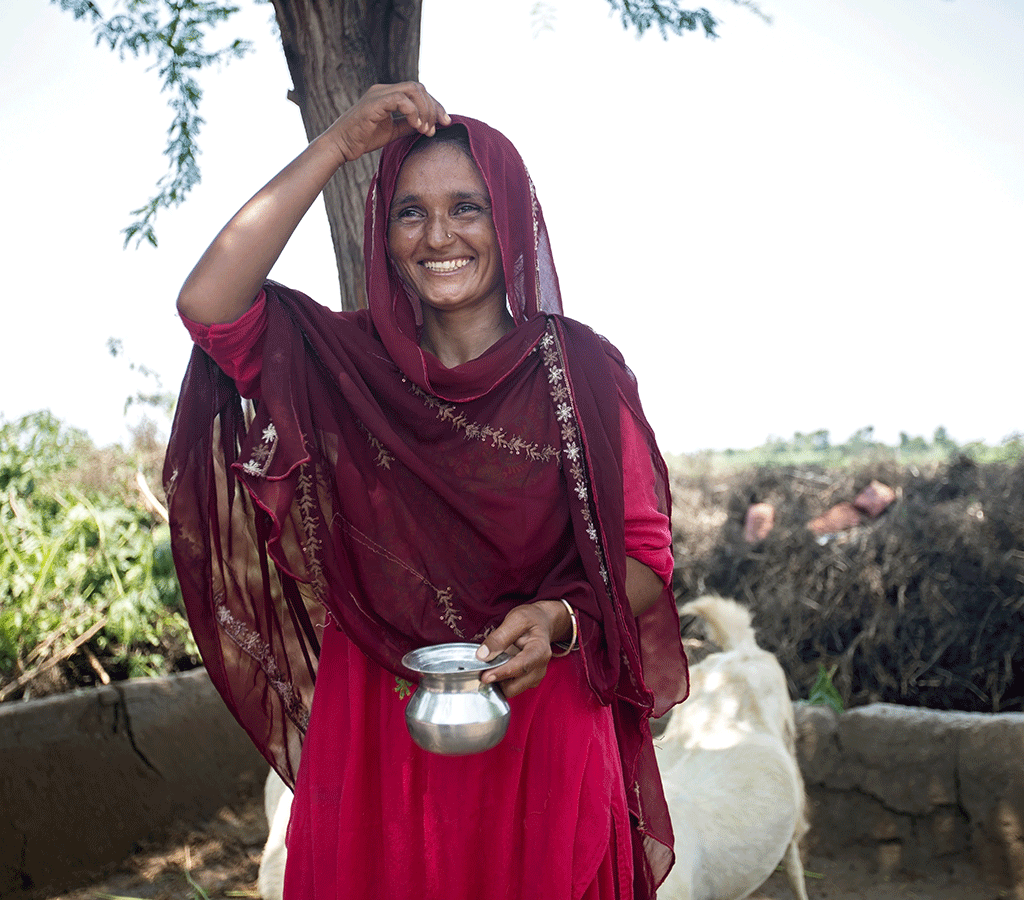
“Before we didn’t have enough resources to feed our children,” explains Zareena. “Now we have easy access to milk for our young children.”
Goat milk is very nutritious and more digestible than cow’s milk. This means Zareena can make sure her children get the nutrients they need.
“We’re in a much better condition after we were provided with these goats,” says Zareena.
Our teams also help women working in the poultry sector to develop their work.
Rozina lives in a village in Sindh province. The coronavirus pandemic, and the lockdown measures that came with it, had a huge impact on imports in the region – leading to a shortage of food.
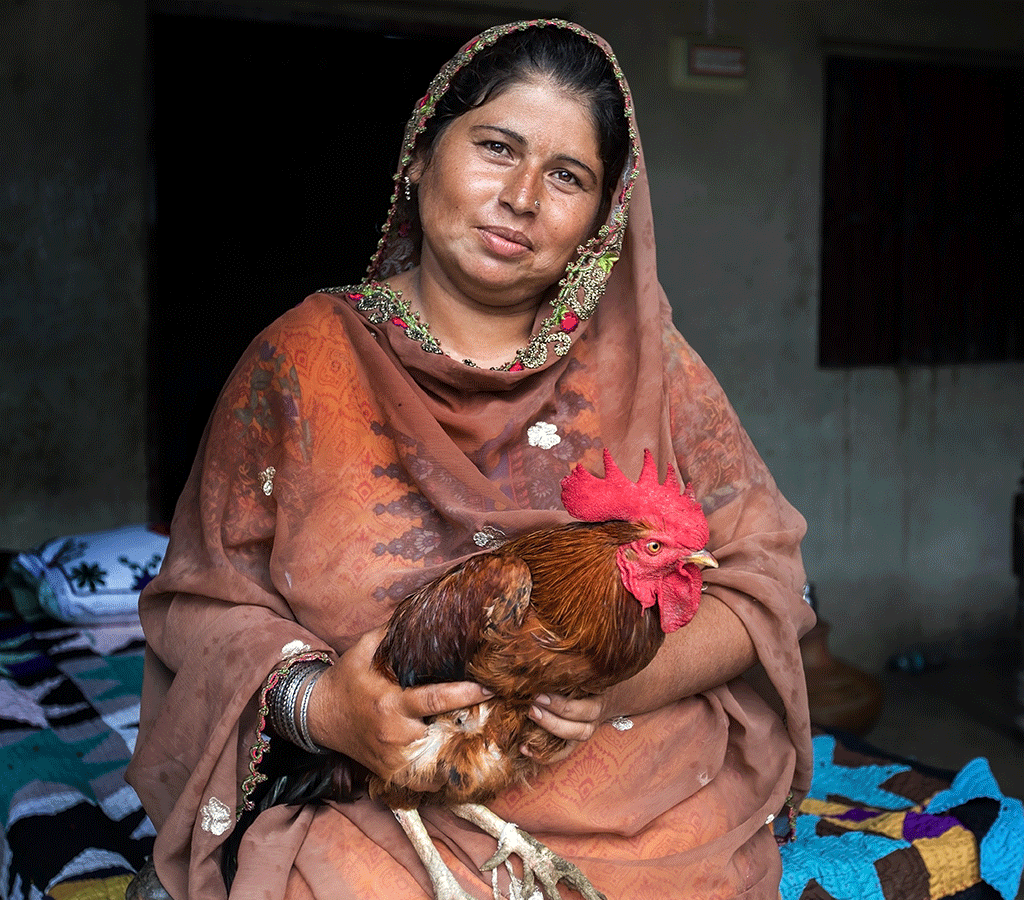
“Everyone faced financial problems during lockdown as workers were badly affected,” explains Rozina. “We didn’t always have food and we struggled to get meat and eggs.”
We gave Rozina a rooster to help improve her monthly income. Now her children are eating well, and she can also save the money she was previously spending on meat and eggs.
“We were provided with a rooster which we breed with our three chickens. Now we have our own chickens and eggs at home. We can feed our children better and we are much happier.”
Adding good quality fish into diets
Community fish farms act as a valuable lifeline in poor communities where accessing good quality fish is difficult. We have provided training in how to feed fish and manage a village fishpond.
“We have established a community fishpond here with 1,500 fish,” explains Dr. Abdul Malik, Technical Officer, Aqua Culture at our local partners RSPN.
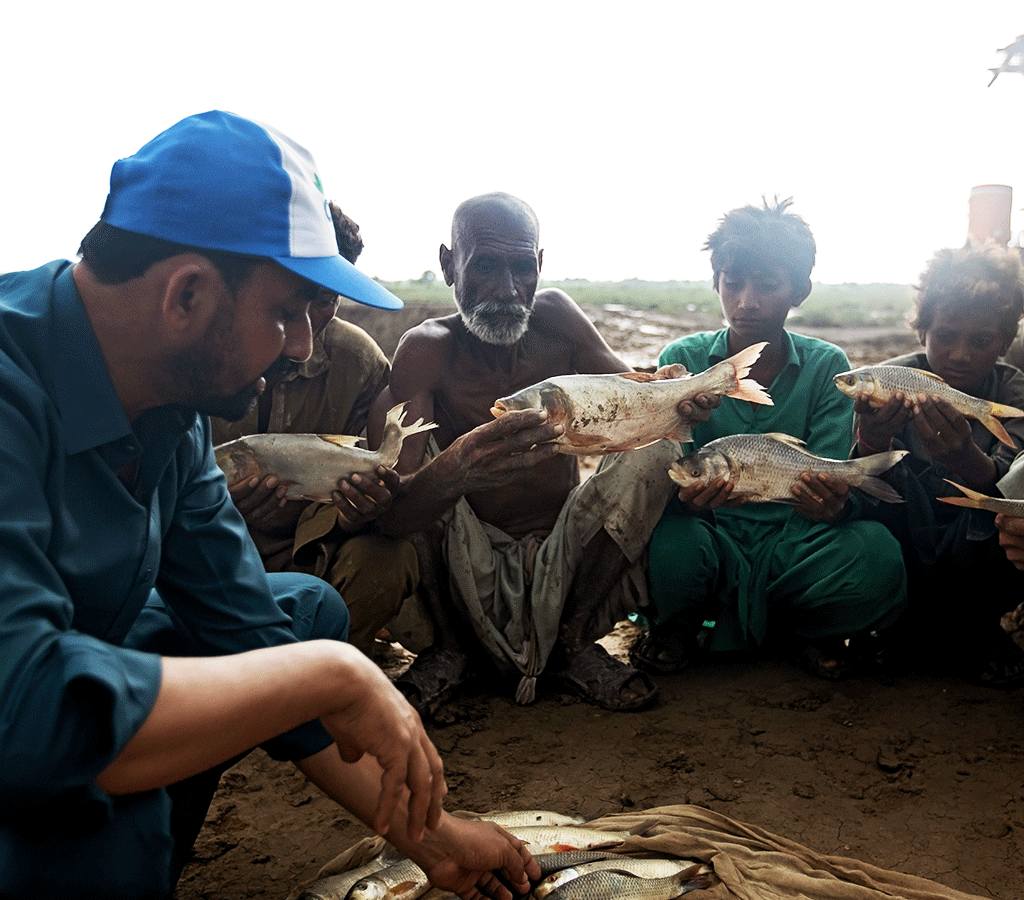
“There are three breeds of fish here,” continues Dr Malik. “We stocked them in April and recently partially harvested some and sold them to the local community at a subsidised rate so that they can consume fresh fish and improve their nutrition.”
“The villagers have grown aware of the benefits of fish farming and are interested in extending this practice. They are getting employment as well as nutritional benefits – two factors working in parallel.”
Through this programme, we’re helping families in some of the poorest and hardest-to-reach places access the nutrients they need to survive and thrive.

